#colonial empires
Explore tagged Tumblr posts
Photo
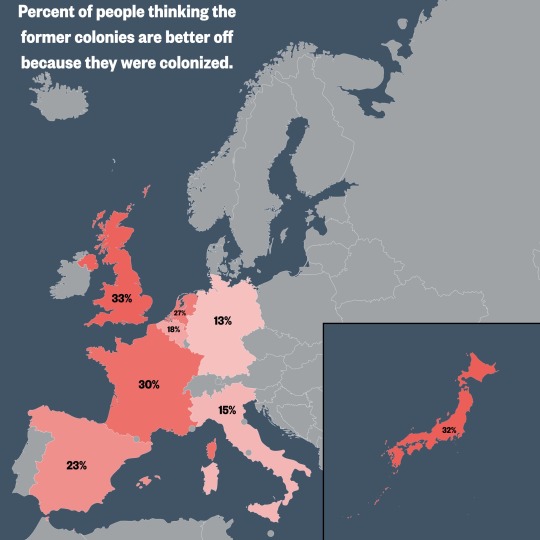

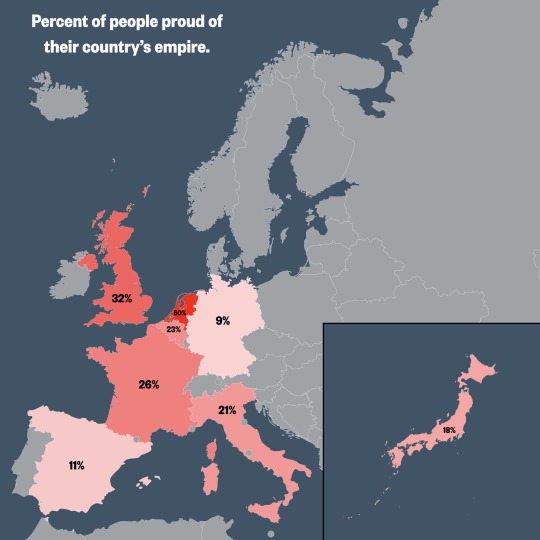
Percent of people in select countries who are proud of their country’s empire, think their empire made their colonies better off, and would like their country to have an empire.
1K notes
·
View notes
Text
17/12/23 this masterlist has been completely revamped with free access to all material. It will be updated and edited periodically so please click on my username and reblog the current version directly from me if you're able.
14/8/24 reboosting this post with How to Help Palestine updated. Please scroll to the bottom to donate or boost the links.
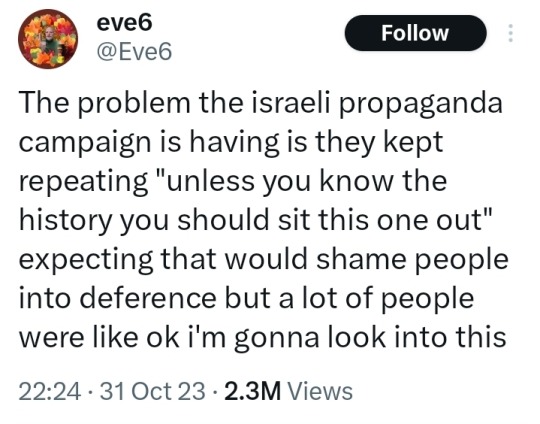
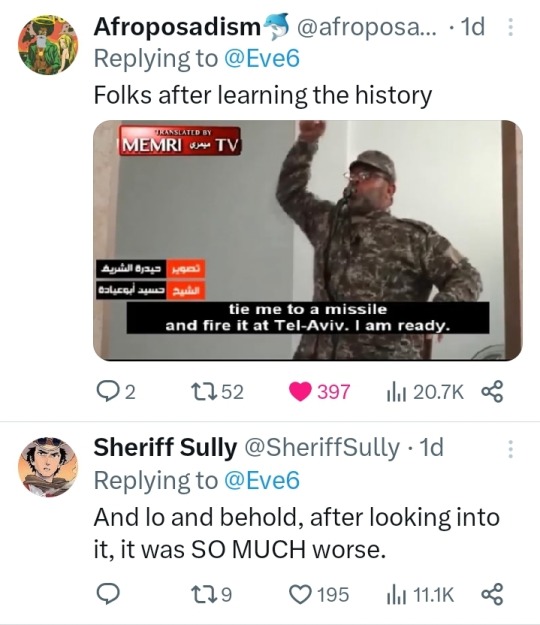

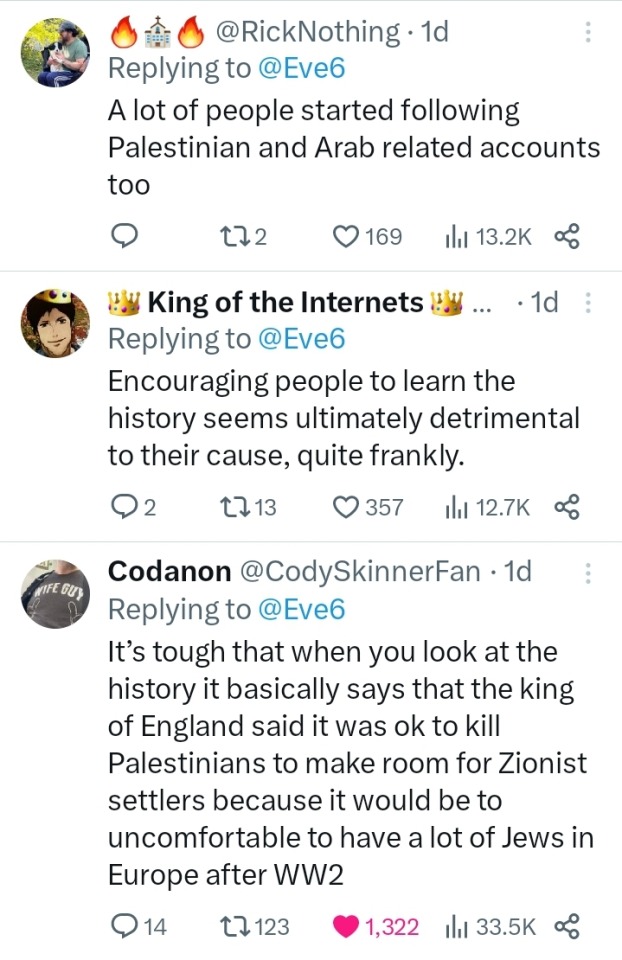
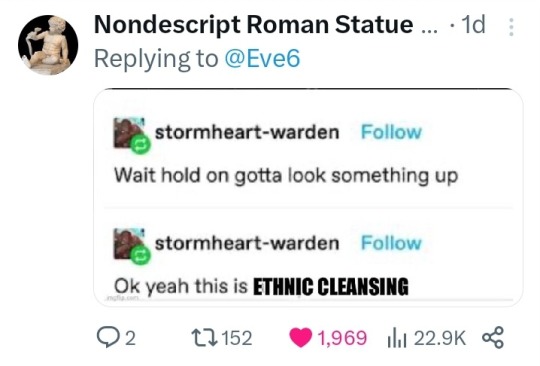
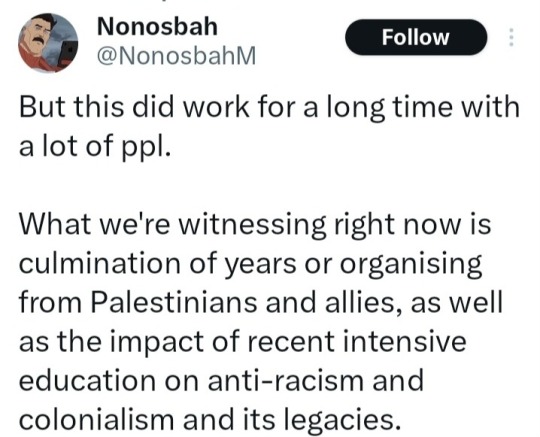
The Big Damn List Of Stuff They Said You Didn't Know
(Yes, it's a lot. Just choose your preferred medium and then pick one.)
Podcasts
Backgrounders and Quick Facts
Interactive Maps
Teach-Out Resources
Reading Material (free)
Films and Documentaries (free)
Non-Governmental Organizations
Social Media
How You Can Help <- URGENT!!!
Podcasts
Cocktails & Capitalism: The Story of Palestine Part 1, Part 3
It Could Happen Here: The Cheapest Land is Bought with Blood, Part 2, The Balfour Declaration
Citations Needed: Media narratives and consent manufacturing around Israel-Palestine and the Gaza Siege
The Deprogram: Free Palestine, ft. decolonizatepalestine.com.
Backgrounders and Quick Facts
The Palestine Academy: Palestine 101
Institute for Middle East Understanding: Explainers and Quick Facts
Interactive Maps
Visualizing Palestine
Teach-Out Resources
1) Cambridge UCU and Pal Society
Palestine 101
Intro to Palestine Film + Art + Literature
Resources for Organising and Facilitating)
2) The Jadaliya YouTube Channel of the Arab Studies Institute
Gaza in Context Teach-in series
War on Palestine podcast
Updates and Discussions of news with co-editors Noura Erakat and Mouin Rabbani.
3) The Palestine Directory
History (virtual tours, digital archives, The Palestine Oral History Project, Documenting Palestine, Queering Palestine)
Cultural History (Palestine Open Maps, Overdue Books Zine, Palestine Poster Project)
Contemporary Voices in the Arts
Get Involved: NGOs and campaigns to help and support.
3) PalQuest Interactive Encyclopedia of the Palestine Question.
4) The Palestine Remix by Al Jazeera
Books and Articles
Free reading material
My Gdrive of Palestine/Decolonization Literature (nearly all the books recommended below + books from other recommended lists)
Five free eBooks by Verso
Three Free eBooks on Palestine by Haymarket
LGBT Activist Scott Long's Google Drive of Palestine Freedom Struggle Resources
Recommended Reading List
Academic Books
Edward Said (1979) The Question of Palestine, Random House
Ilan Pappé (2002)(ed) The Israel/Palestine Question, Routledge
Ilan Pappé (2006) The Ethnic Cleansing of Palestine, OneWorld Publications
Ilan Pappé (2011) The Forgotten Palestinians: A History of the Palestinians in Israel, Yale University Press
Ilan Pappé (2015) The Idea of Israel: A History of Power and Knowledge, Verso Books
Ilan Pappé (2017) The Biggest Prison On Earth: A History Of The Occupied Territories, OneWorld Publications
Ilan Pappé (2022) A History of Modern Palestine, Cambridge University Press
Rosemary Sayigh (2007) The Palestinians: From Peasants to Revolutionaries, Bloomsbury
Andrew Ross (2019) Stone Men: the Palestinians who Built Israel, Verso Books
Rashid Khalidi (2020) The Hundred Years’ War on Palestine: A History of Settler Colonialism and Resistance 1917–2017
Ariella Azoulay (2011) From Palestine to Israel: A Photographic Record of Destruction and State Formation, 1947-1950, Pluto Press
Ariella Azoulay and Adi Ophir (2012) The One-State Condition: Occupation and Democracy in Israel/Palestine, Stanford University Press.
Jeff Halper (2010) An Israeli in Palestine: Resisting Dispossession, Redeeming Israel, Pluto Press
Jeff Halper (2015) War Against the People: Israel, the Palestinians and Global Pacification
Jeff Halper (2021) Decolonizing Israel, Liberating Palestine: Zionism, Settler Colonialism, and the Case for One Democratic State, Pluto Press
Anthony Loewenstein (2023) The Palestine Laboratory: How Israel exports the Technology of Occupation around the World
Noura Erakat (2019) Justice for Some: Law and the Question of Palestine, Stanford University Press
Neve Gordon (2008) Israel’s Occupation, University of California Press
Joseph Massad (2006) The Persistence of the Palestinian Question: Essays on Zionism and the Palestinians, Routledge
Memoirs
Edward Said (1986) After the Last Sky: Palestine Lives, Columbia University PEdward Saidress
Edward Said (2000) Out of Place; A Memoir, First Vintage Books
Mourid Barghouti (2005) I saw Ramallah, Bloomsbury
Hatim Kanaaneh (2008) A Doctor in Galilee: The Life and Struggle of a Palestinian in Israel, Pluto Press
Raja Shehadeh (2008) Palestinian Walks: Into a Vanishing Landscape, Profile Books
Ghada Karmi (2009) In Search of Fatima: A Palestinian Story, Verso Books
Vittorio Arrigoni (2010) Gaza Stay Human, Kube Publishing
Ramzy Baroud (2010) My Father Was a Freedom Fighter: Gaza's Untold Story, Pluto Press
Izzeldin Abuelaish (2011) I Shall Not Hate: A Gaza Doctor’s Journey on the Road to Peace and Human Dignity, Bloomsbury
Atef Abu Saif (2015) The Drone Eats with Me: A Gaza Diary, Beacon Press
Anthologies
Voices from Gaza - Insaniyyat (The Society of Palestinian Anthropologists)
Letters From Gaza • Protean Magazine
Salma Khadra Jayyusi (1992) Anthology of Modern Palestinian Literature, Columbia University Press
ASHTAR Theatre (2010) The Gaza Monologues
Refaat Alreer (ed) (2014) Gaza Writes Back, Just World Books
Refaat Alreer, Laila El-Haddad (eds) (2015) Gaza Unsilenced, Just World Books
Cate Malek and Mateo Hoke (eds)(2015) Palestine Speaks: Narrative of Life under Occupation, Verso Books
Jehad Abusalim, Jennifer Bing (eds) (2022) Light in Gaza: Writings Born of Fire, Haymarket Books
Short Story Collections
Ghassan Kanafani, Hilary Kilpatrick (trans) (1968) Men in the Sun and Other Palestinian Stories, Lynne Rienner Publishers
Ghassan Kanafani, Barbara Harlow, Karen E. Riley (trans) (2000) Palestine’s Children: Returning to Haifa and Other Stories, Lynne Rienner Publishers
Atef Abu Saif (2014) The Book of Gaza: A City in Short Fiction, Comma Press
Samira Azzam, Ranya Abdelrahman (trans) (2022) Out Of Time: The Collected Short Stories of Samira Azzam
Sonia Sulaiman (2023) Muneera and the Moon; Stories Inspired by Palestinian Folklore
Essay Collections
Edward W. Said (2000) Reflections on Exile and Other Essays, Harvard University Press
Salim Tamari (2008) Mountain against the Sea: Essays on Palestinian Society and Culture, University of California Press
Fatma Kassem (2011) Palestinian Women: Narratives, histories and gendered memory, Bloombsbury
Ramzy Baroud (2019) These Chains Will Be Broken: Palestinian Stories of Struggle and Defiance in Israeli Prisons, Clarity Press
Novels
Sahar Khalifeh (1976) Wild Thorns, Saqi Books
Liyana Badr (1993) A Balcony over the Fakihani, Interlink Books
Hala Alyan (2017) Salt Houses, Harper Books
Susan Abulhawa (2011) Mornings in Jenin, Bloomsbury
Susan Abulhawa (2020) Against the Loveless World, Bloomsbury
Graphic novels
Joe Sacco (2001) Palestine
Joe Sacco (2010) Footnotes in Gaza
Naji al-Ali (2009) A Child in Palestine, Verso Books
Mohammad Sabaaneh (2021) Power Born of Dreams: My Story is Palestine, Street Noise Book*
Poetry
Fady Joudah (2008) The Earth in the Attic, Sheridan Books,
Ghassan Zaqtan, Fady Joudah (trans) (2012) Like a Straw Bird It Follows Me and Other Poems, Yale University Press
Hala Alyan (2013) Atrium: Poems, Three Rooms Press*
Mohammed El-Kurd (2021) Rifqa, Haymarket Books
Mosab Abu Toha (2022) Things You May Find Hidden in My Ear: Poems from Gaza, City Lights Publishers
Tawfiq Zayyad (2023) We Are Here to Stay, Smokestack Books*
The Works of Mahmoud Darwish
Poems
Rafeef Ziadah (2011) We Teach Life, Sir
Nasser Rabah (2022) In the Endless War
Refaat Alareer (2011) If I Must Die
Hiba Abu Nada (2023) I Grant You Refuge/ Not Just Passing
[All books except the ones starred are available in my gdrive. I'm adding more each day. But please try and buy whatever you're able or borrow from the library. Most should be available in the discounted Free Palestine Reading List by Pluto Press, Verso and Haymarket Books.]
Human Rights Reports & Documents
Information on current International Court of Justice case on ‘Legal Consequences arising from the Policies and Practices of Israel in the Occupied Palestinian Territory, including East Jerusalem’
UN Commission of Inquiry Report 2022
UN Special Rapporteur Report on Apartheid 2022
Amnesty International Report on Apartheid 2022
Human Rights Watch Report on Apartheid 2021
Report of the United Nations Fact-Finding Mission on the Gaza Conflict’ 2009 (‘The Goldstone Report’)
Advisory Opinion on the Legal Consequences of the Construction of a Wall in the Occupied Palestinian Territory, International Court of Justice, 9 July 2004
Films
Documentaries
Jenin, Jenin (2003) dir. Mohammed Bakri
Massacre (2005) dir. Monica Borgmann, Lokman Slim, Hermann Theissen
Slingshot HipHop (2008) dir. Jackie Reem Salloum
Waltz with Bashir (2008) dir. Ari Folman † (also on Amazon Prime)
Tears of Gaza (2010) dir. Vibeke Løkkeberg (also on Amazon Prime)
5 Broken Cameras (2011) dir. Emad Burnat (also on Amazon Prime)
The Gatekeepers (2012) dir. Dror Moreh (also on Amazon Prime)
The Great Book Robbery (2012) | Al Jazeera English
Al Nakba (2013) | Al Jazeera (5-episode docu-series)
The Village Under the Forest (2013) dir. Mark J. Kaplan
Where Should The Birds Fly (2013) dir. Fida Qishta
Naila and the Uprising (2017) (also on Amazon Prime)
GAZA (2019) dir. Andrew McConnell and Garry Keane
Gaza Fights For Freedom (2019) dir. Abby Martin
Little Palestine: Diary Of A Siege (2021) dir. Abdallah Al Khatib
Palestine 1920: The Other Side of the Palestinian Story (2021) | Al Jazeera World Documentary
Gaza Fights Back (2021) | MintPress News Original Documentary | dir. Dan Cohen
Innocence (2022) dir. Guy Davidi
Short Films
Fatenah (2009) dir. Ahmad Habash
Gaza-London (2009) dir. Dina Hamdan
Condom Lead (2013) dir. Tarzan Nasser, Arab Nasser
OBAIDA (2019) | Defence for Children Palestine
Theatrical Films
Divine Intervention (2002) | dir. Elia Suleiman (also on Netflix)
Paradise Now (2005) dir Hany Abu-Assad (also on Amazon Prime)
Lemon Tree (2008) (choose auto translate for English subs) (also on Amazon Prime)
It Must Be Heaven (2009) | dir. Elia Suleiman †
The Promise (2010) mini-series dir. Peter Kosminsky (Part 1, Part 2, Part 3, Part 4)
Habibi (2011)* dir. Susan Youssef
Omar (2013)* dir. Hany Abu-Assad †
3000 Nights (2015)* dir. Mai Masri
Foxtrot (2017) dir. Samuel Maoz (also on Amazon Prime)
The Time that Remains (2019) dir. Elia Suleiman †
Gaza Mon Amour (2020) dir. Tarzan Nasser, Arab Nasser †
The Viewing Booth (2020) dir. Ra'anan Alexandrowicz (on Amazon Prime and Apple TV)
Farha (2021)* | dir. Darin J. Sallam
Palestine Film Institute Archive
All links are for free viewing. The ones marked with a star (*) can be found on Netflix, while the ones marked † can be downloaded for free from my Mega account.
If you find Guy Davidi's Innocence anywhere please let me know, I can't find it for streaming or download even to rent or buy.
In 2018, BDS urged Netflix to dump Fauda, a series created by former members of IOF death squads that legitimizes and promotes racist violence and war crimes, to no avail. Please warn others to not give this series any views. BDS has not called for a boycott of Netflix. ]
NGOs
The Boycott, Divestment, Sanctions (BDS) Movement
Euro-Mediterranean Human Rights Monitor
UNRWA
Palestine Defence for Children International
Palestinian Feminist Collective
Al-Shabaka: The Palestinian Policy Network
Addameer Prisoner Support and Human Rights Association
Institute for Palestine Studies
Al Haq
Artists for Palestine
The Palestine Museum
Jewish Currents
B’Tselem
DAWN
Social Media
Palestnians on Tumblr
@el-shab-hussein
@killyfromblame
@apollos-olives
@fairuzfan
@palipunk
@sar-soor
@nabulsi
@wearenotjustnumbers2
@90-ghost
@tamarrud
@northgazaupdates
Allies and advocates (not Palestinian)
@bloglikeanegyptian beautiful posts that read like op-eds
@vyorei daily news roundups
@luthienne resistance through prose
@decolonize-the-left scoop on the US political plans and impacts
@feluka
@anneemay
(Please don't expect any of these blogs to be completely devoted to Palestine allyship; they do post regularly about it but they're still personal blogs and post whatever else they feel like. Do not harrass them.)
Gaza journalists
Motaz Azaiza IG: @motaz_azaiza | Twitter: @azaizamotaz9 | TikTok: _motaz.azaiza (left Gaza as of Jan 23)
Bisan Owda IG and TikTok: wizard_bisan1 | Twitter: @wizardbisan
Saleh Aljafarawi IG: @saleh_aljafarawi | Twitter: @S_Aljafarawi | TikTok: @saleh_aljafarawi97
Plestia Alaqad IG: @byplestia | TikTok: @plestiaaqad (left Gaza)
Wael Al-Dahdouh IG: @wael_eldahdouh | Twitter: @WaelDahdouh (left Gaza as of Jan 13)
Hind Khoudary IG: @hindkhoudary | Twitter: @Hind_Gaza
Ismail Jood IG and TikTok: @ismail.jood (announced end of coverage on Jan 25)
Yara Eid IG: @eid_yara | Twitter: @yaraeid_
Eye on Palestine IG: @eye.on.palestine | Twitter: @EyeonPalestine | TikTok: @eyes.on.palestine
Muhammad Shehada Twitter: @muhammadshehad2
(Edit: even though some journos have evacuated, the footage up to the end of their reporting is up on their social media, and they're also doing urgent fundraisers to get their families and friends to safety. Please donate or share their posts.)
News organisations
The Electronic Intifada Twitter: @intifada | IG: @electronicintifada
Quds News Network Twitter and Telegram: @QudsNen | IG: @qudsn (Arabic)
Times of Gaza IG: @timesofgaza | Twitter: @Timesofgaza | Telegram: @TIMESOFGAZA
The Palestine Chronicle Twitter: @PalestineChron | IG: @palestinechron | @palestinechronicle
Al-Jazeera Twitter: @AJEnglish | IG and TikTok: @aljazeeraenglish, @ajplus
Middle East Eye IG and TikTok: @middleeasteye | Twitter: @MiddleEastEye
Democracy Now Twitter and IG: @democracynow TikTok: @democracynow.org
Mondoweiss IG and TikTok: @mondoweiss | Twitter: @Mondoweiss
The Intercept Twitter and IG: @theintercept
MintPress Twitter: @MintPressNews | IG: mintpress
Novara Media Twitter and IG: @novaramedia
Truthout Twitter and IG: @truthout
Palestnians on Other Social Media
Mouin Rabbani: Middle East analyst specializing in the Arab-Israeli conflict and Palestinian affairs. Twitter: @MouinRabbani
Noura Erakat: Legal scholar, human rights attorney, specialising in Israeli–Palestinian conflict. Twitter: @4noura | IG: @nouraerakat | (http://www.nouraerakat.com/)
Hebh Jamal: Journalist in Germany. IG and Twitter: @hebh_jamal
Ghada Sasa: PhD candidate in International Relations, green colonialism, and Islam in Canada. Twitter: @sasa_ghada | IG: @ghadasasa48
Taleed El Sabawi: Assistant professor of law and researcher in public health. Twitter: @el_sabawi | IG
Lexi Alexander: Filmmaker and activist. Twitter: @LexiAlex | IG: @lexialexander1
Mariam Barghouti: Writer, blogger, researcher, and journalist. Twitter: @MariamBarghouti | IG: @mariambarghouti
Rasha Abdulhadi: Queer poet, author and cultural organizer. Twitter: @rashaabdulhadi
Mohammed el-Kurd: Writer and activist from Jerusalem. IG: @mohammedelkurd | Twitter: @m7mdkurd
Ramy Abdu: Founder and Chairman of the Euro-Mediterranean Human Rights Monitor. Twitter: @RamyAbdu
Subhi: Founder of The Palestine Academy website. IG: @sbeih.jpg |TikTok @iamsbeih | Twitter: @iamsbeih
Allies
Lowkey (Kareem Dennis): Rapper, activist, video and podcast host for MintPress. Twitter: @LowkeyOnline IG: @lowkeyonline
Francesca Albanese: UN Special Rapporteur on the Occupied Territories. Twitter: @FranceskAlbs
Sana Saeed: Journalist and media critic, host and senior producer at Al-Jazeera Plus. IG: @sanaface | Twitter: @SanaSaeed
Shailja Patel: Poet, playwright, activist, founding member of Kenyans For Peace, Truth and Justice. Twitter: @shailjapatel
Jairo I. Fúnez-Flores: Researcher in curriculum studies, decolonial theory, social movements. Twitter: @Jairo_I_Funez
Jack Dodson: Journalist and Filmmaker. Twitter: @JackDodson IG: @jdodson4
Imani Barbarin: Writer, public speaker, and disability rights activist. IG: @crutches_and_spice | Twitter: @Imani_Barbarin | TikTok: @crutches_and_spice
Jewish Allies
Katie Halper: US comedian, writer, filmmaker, podcaster, and political commentator. IG and Twitter: @kthalps
Dr. Chanda Prescod-Weinstein: Associate Professor of Physics and Core Faculty Member in Women’s and Gender Studies at the University of New Hampshire. Twitter: @IBJIYONGI | (https://chanda.science/)
Amanda Gelender: Writer. Twitter: @agelender | (https://agelender.medium.com/)
Yoav Litvin: Jerusalem-born Writer and Photographer. IG and Twitter: @nookyelur | (yoavlitvin.com)
Alana Lentin: Professor of Cultural and Social Analysis at Western Sydney University. Twitter: @alanalentin
Gideon Levy: anti-Zionist Israeli journalist and activist. Twitter: @gideonlevy
‼️How You Can Help Palestine‼️
Click for Palestine (Please reblog!!)
Masterlist of donation links by @sulfurcosmos (Please reblog!!)
Water for Gaza: Donate directly to the Gaza Municipality
Operation Olive Branch Linktree for vetted fundraisers, donations and political action resources. TikTok and Instagram: @operationolivebranch | Twitter: @OPOliveBranch
Gazafunds (vetted and spotlighted GFMs)
The Butterfly Effect Project (spreadsheet of vetted GFMs)
Spreadsheet of Gaza fundraisers vetted by @el-shab-hussein and @nabulsi
If any links are broken let me know. Or pull up the current post to check whether it's fixed.
Political action to pressure the Harris campaign to stop arming Israel (for US citizens): Uncommitted Movement (TikTok: @uncommittedmvmt) (Please reblog!!)
"Knowledge is Israel's worst enemy. Awareness is Israel's most hated and feared foe. That's why Israel bombs a university: it wants to kill openness and determination to refuse living under injustice and racism."
— Dr. Refaat Alareer, (martyred Dec 6, 2023)
From River To The Sea Palestine Will Be Free 🇵🇸🇵🇸🇵🇸
-----
Edit 1: took the first video down because turns out the animator is a terf and it links to her blog. Really sorry for any distress.
Edit 2: All recommended readings + Haymarket recommendations + essential decolonization texts have been uploaded to my linked gdrive. I will adding more periodically. Please do buy or check them out from the library if possible, but this post was made for and by poor and gatekept Global South bitches like me.
Some have complained about the memes being disrespectful. You're actually legally obligated to make fun of Israeli propaganda and Zionists. I don't make the rules.
Edit 3: "The river to the sea" does not mean the expulsion of Jews from Palestine. Believing that is genocide apologia.
Edit 4: Gazans have specifically asked us to put every effort into pushing for a ceasefire instead of donations. "Raising humanitarian aid" is a grift Western governments are pushing right now to deflect from the fact that they're sending billions to Israel to keep carpet bombing Gazans. As long as the blockades are still in place there will never be enough aid for two million people. (UPDATE: PLEASE DONATE to the Gazan's GoFundMe fundraisers to help them buy food and get out of Rafah into Egypt. E-SIMs, food and medical supplies are also essential. Please donate to the orgs linked in the How You Can Help. Go on the strikes. DO NOT STOP PROTESTING.)
Edit 5: Google drive link for academic books folder has been fixed. Also have added a ton of resources to all the other folders so please check them out.
Edit 6: Added interactive maps, Jadaliya channel, and masterlists of donation links and protest support and of factsheets.
The twitter accounts I reposted as it was given to me and I just now realized it had too many Israeli voices and almost none of the Palestinians I'm following, so it's being edited. (Update: done!) also removed sources like Jewish Voices of Peace and Breaking the Silence that do good work but have come under fair criticism from Palestinians.
Edit 7: Complete reformatting
Edit 8: Complete revamping of the social media section. It now reflects my own following list.
Edit 9: removed some more problematic people from the allies list. Remember that the 2SS is a grift that's used to normalize violence and occupation, kids. Supporting the one-state solution is lowest possible bar for allyship. It's "Free Palestine" not "Free half of Palestine and hope Israel doesn't go right back to killing them".
Edit 10: added The Palestine Directory + Al Jazeera documentary + Addameer. This "100 links per post" thing sucks.
Edit 11: more documentaries and films
Edit 12: reformatted reading list
Edit 13: had to remove @palipunk's masterlist to add another podcast. It's their pinned post and has more resources Palestinian culture and crafts if you want to check it out
Edit 14 6th May '24: I've stopped updating this masterlist so some things, like journalists still left in Gaza and how to support the student protests are missing. I've had to take a step back and am no longer able to track these things down on my own, and I've hit the '100 links per post' limit, but if you can leave suggestions for updates along with links in either the replies or my asks I will try and add them.
Edit 15 10th August: added to Palestinian allies list and reworked the Help for Palestine section. There's been a racist harrassment campaign against the Palestinian Tumblrs that vetted the Gaza fundraisers based off one mistake made by a Gazan who doesn't understand English. If you're an ally, shut that shit down. Even if you donate to a scam GFM, you're only out some coffee money; if everyone stops donating to all the GFMs in fear of scams, those families die.
#free palestine#palestine resources#palestine reading list#decolonization#israel palestine conflict#israel palestine war#british empire#american imperialism#apartheid#social justice#middle east history#MENA#arab history#anti zionism#palestinian art#palestinian history#palestinian culture#palestinian genocide#al nakba#ethnic cleansing#war crimes#racism#imperialism#colonialism#british colonialism#knee of huss#ask to tag#Youtube
83K notes
·
View notes
Video
youtube
Unlocking the Enigma: Journey Through the Inca Empire's Rich History!
The Inca Empire, nestled in the heart of the Andes Mountains, stands as a testament to ancient ingenuity, cultural brilliance, and the relentless march of time. This documentary promises an immersive exploration, spanning the rise and fall of the Inca Empire, shedding light on mysterious tales, and unraveling the secrets of a lost civilization.
At the core of our historical odyssey is the architectural marvel that defined the Inca Empire. From the iconic Machu Picchu to the intricate road systems connecting the vast expanse of the empire, the Inca's engineering prowess was unparalleled. The documentary showcases these wonders, inviting viewers to marvel at the sophistication of a civilization that thrived amidst challenging mountainous terrain.
Central to the narrative is the Spanish conquest that forever altered the course of Inca history. The clash of civilizations, the strategies employed, and the inevitable fall of the empire are explored in vivid detail. Viewers will witness the pivotal moments that shaped the destiny of the Inca people, pondering the 'what ifs' of history had the empire survived.
In a captivating segment, the documentary introduces a 15-year-old girl who lived within the Inca Empire. Her story unfolds against the backdrop of daily life, cultural richness, and the challenges faced by individuals during this time. It adds a personal touch, offering a glimpse into the lives of those who walked the ancient streets of Cusco and gazed upon the wonders of their civilization.
Venturing further into the shadows of history, the film unveils the secrets of Inca mummies. These preserved remnants carry tales of rituals, beliefs, and practices that defined the spiritual fabric of the empire. The documentary carefully peels back the layers, providing insights into the mysteries surrounding these ancient remains.
Accompanied by a carefully curated musical journey, the documentary not only educates but also immerses viewers in the sounds that echoed through the Inca Empire. From the lofty heights of the Andes to the bustling streets of its cities, the soundtrack enhances the emotional resonance of the historical narrative.
In conclusion, this documentary is a comprehensive exploration of the Inca Empire's history, art, architecture, and culture. It invites viewers to question, reflect, and appreciate the enduring legacy of a civilization that has captivated the world for centuries. Subscribe now and embark on a journey through time, where the past comes alive, and the Inca Empire's mysteries are unveiled.
#youtube#inca empire#inca#the inca empire#spanish empire#inka empire#colonial empires#incan history#ancient history#history
0 notes
Text
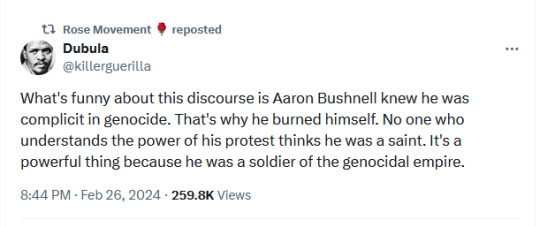

4K notes
·
View notes
Text
Seeing articles and videos about “Israel” arming settlers reminds me of the stories my great grandpa told me about May 8th 1945. How France armed the settlers so they would help the colonial authorities kill Algerians. 45000 Algerians were killed in just a couple days and many more were jailed without proper trial.
The general who organized the massacre said to France “I got you 10 years of peace. But things need to change in Algeria, they failed only because the protests were not simultaneous. The calm is back only in surface, the gap between the two communities deepened. You cannot keep on using violence if you want to keep Algeria and your methods need to change.”
He was right (still a peace of shit cause dude organized the massacre of 45000 Algerians). France didn’t listen to him and 9 years and a half later on November 1st 1954 the Algerian war of liberation started with simultaneous attacks all over the North of Algeria. It started with 1000 men only and 8 years later Algeria was free of French colonial rule.
That’s why I’m convinced that Palestine will be free because Israel is repeating the same mistakes France did. My grandpa keeps telling me that he trust Palestinians to take back their land because that’s the natural order of things and because “Israel” reminds him so much of France. The methods, the lies, the propaganda. And just like Algerian women managed to show to the world what was truly happening and switched the public opinion, Palestinian journalists are showing to the world what’s happening. It cannot be ignored.
Pro Israel aholes reached the point where they have to disguise their protests as protest against antisemitism in order to gather any form of support from the public. Western medias already lost all credibility to the point where they are backtracking a bit. Politicians are backtracking slowly too. Because they are realizing that if they keep up the unconditional support they will fall with Israel (tbh I think they are all falling with Israel either way because whenever the Global South rise the West fall cause the West is unable to thrive without looting and oppressing the Global South.).
Palestine will be free in our lifetime Inch’Allah and we will all share pictures and videos of the liberation. Palestinians are going to rebuild their country and thrive. If Algeria kicked out colonizers after 132 years Palestine can do it because it’s a country of braves. Because nobody can stop a people who fight for liberation when the people are united.
#from the river to the sea palestine will be free#Palestine#algeria#colonialism#colonial empires arming settlers
3K notes
·
View notes
Quote
Stupidity, however extreme, is not a war crime.
Anatol Lieven ("Ukraine's War Is Like World War I, Not World War II" at Foreign Policy)
#writing#foreign policy#authoritarian statecraft#territorial sovereignty#war literature#writeblr#writing tips#ukraine#anatol lieven#quincy institute for responsible statecraft#writing advice#war tactics#bad war strategy should not be confused with poor moral fortitude#even so#this is a great quote for figurative use#unrestricted submarine warfare#colonial empires#austro hungarian empire#russian invasion of ukraine#war can be legal#strange as it seems#wwi#wwii#world war i#world war ii
1 note
·
View note
Text
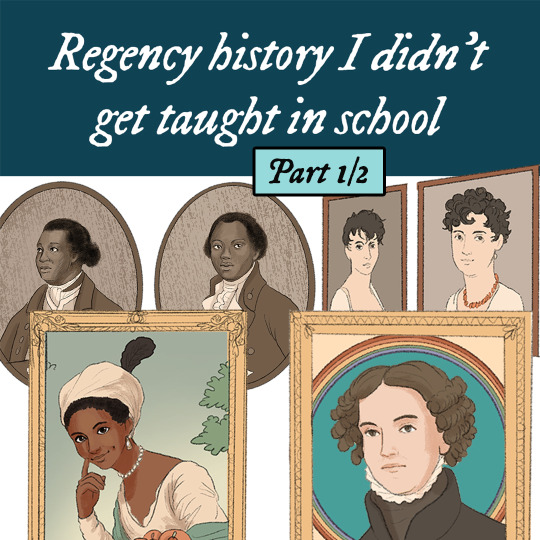
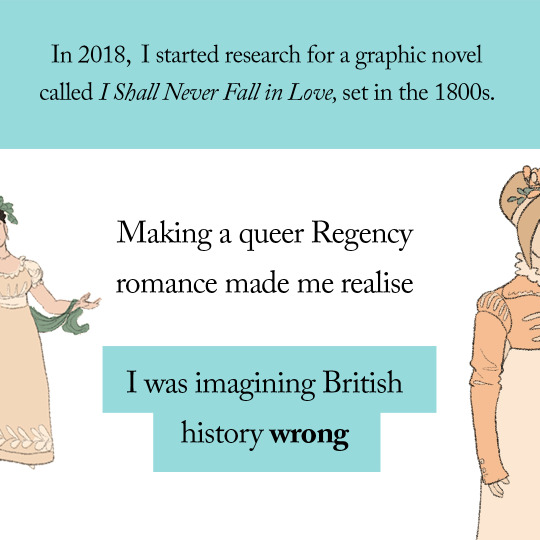
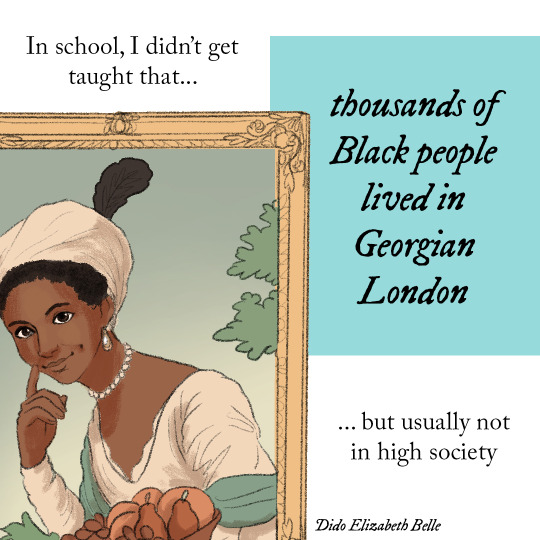
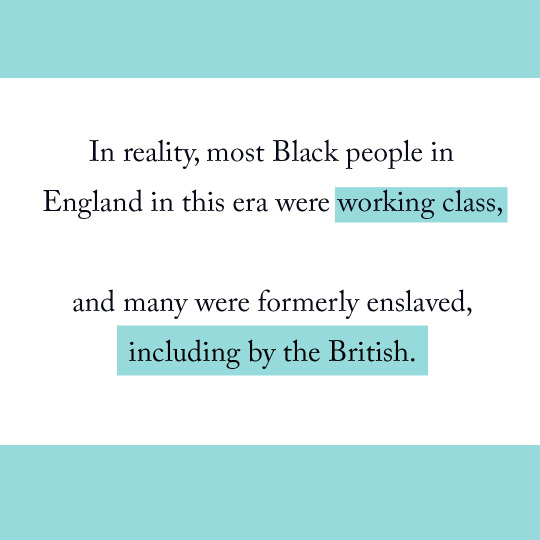

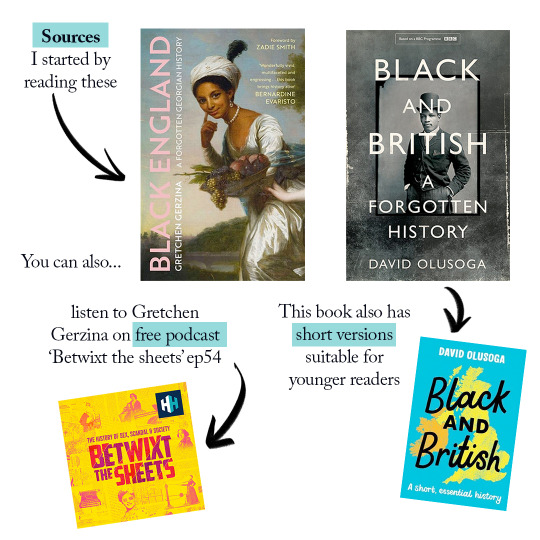
Excuse the format (I made this for instagram since that's what the publisher wants, rip) but this is basically a shorter, easy-to-read version of the history section at the back of my new book.
(Part 2 || The book)
---
Disclaimer: I'm extremely not an expert, and this is only scratching the very surface of complex topics that are hard to simplify. I mostly made this to EXTREMELY rec these books and podcasts, and would urge you to go check them out if you're not familiar!!
This stuff might seem obvious to some of you, but let me tell you, I do NOT think it's widely known in the general UK population.
Imo a lot of the general (especially white) public think that the Windrush generation - Caribbean migrants brought in to help rebuild postwar Britain in the 50s - were the first Black communities in the UK. And yet there's deliberately not much focus on why the Caribbean has links with northern europe. HMMMM
(Britain loves, for example, to celebrate the abolition of slavery without mentioning WHAT CAME BEFORE IT - Britain being the biggest trader of enslaved people, with more than 1 million people enslaved in the British Caribbean. They literally just did it overseas.)
Telling the truth about history or British imperialism gets this massive manufactured backlash at the moment. There are so many ideas prevalent in UK politics - anti-Black, anti-refugee, anti-trans - based on going ‘back’ to some imaginary version of the past. Those are enabled by a long tradition of carving parts out of the historical record, and being selective about whose histories get told and preserved. Even though the book I was making is a fun rom-com, by the time I finished researching, I decided to make an illustrated history section at the back too (this is a mini version). My hope is that readers who haven’t come across these histories might get an introduction to them - and some pointers of what they could read next to get a clearer view of our past.
#i feel like it's also gone the other way a bit#where some people imagine a sanitised bridgerton version of historical britain where racism doesnt exist?#trying to speak to BOTH groups#but like. you can't understand british history without the white supremacy inherent in its empire building. that IS british history#can't overstate how impossible it was to read anything about 1800s england without being clobbered round the face with colonialism#anyway uk people pls read at least one imperial history book by someone who's not white AND not entrenched in establishment revisionism#i shall make a tag for this in the hope i do more#hari's history corner
827 notes
·
View notes
Text
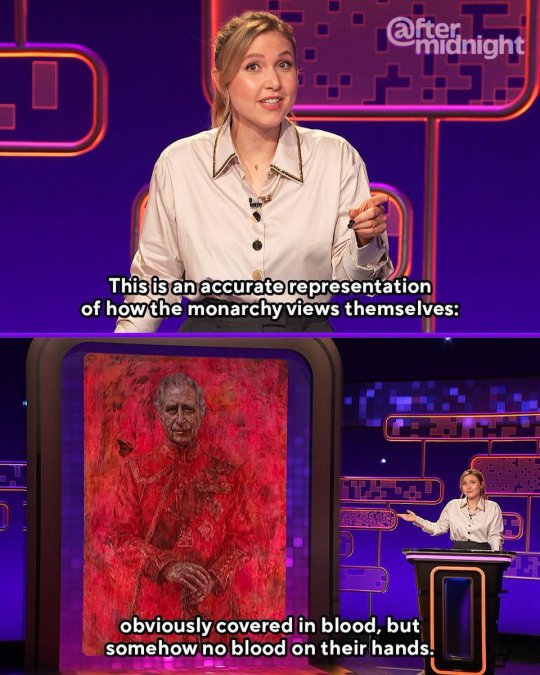
1K notes
·
View notes
Text
“It’s gross if Katara marries Zuko since he’s her colonizer” she overthrew the last Fire Lord to put Zuko on the throne. If anything the Fire Nation would be worried that he’s Katara’s puppet
#“Katara and Zuko are like Pocahontas and John Smith” yeah if Pocahontas toppled the British Empire and made John Smith run it#Trivia: the episode The Puppetmaster foreshadows the geopolitical conflict stemming from the paranoia that Fire Lord Zuko is a puppet king#Especially since palace servants can confirm that he is a simp for Master Katara of the Southern Water Tribe#Tbh installing a ruler in line w your interests is actually a classic colonialism move so she reverse UNO’ed the whole situation#Zutara#pro zutara#anti anti zutara#fire lady katara#ATLA colonization discourse
870 notes
·
View notes
Text
My alternate universe fantasy colonial Hong Kong is more authoritarian and just as racist but less homophobic than in real life, should I change that?
@floatyhands asked:
I’m a Hongkonger working on a magical alternate universe dystopia set in what is basically British colonial Hong Kong in the late 1920s. My main character is a young upper middle-class Eurasian bisexual man. I plan to keep the colony’s historical racial hierarchy in this universe, but I also want the fantasy quirks to mean that unlike in real life history, homosexuality was either recently decriminalized, or that the laws are barely enforced, because my boy deserves a break. Still, the institutions are quite homophobic, and this relative tolerance might not last. Meanwhile, due to other divergences (e.g. eldritch horrors, also the government’s even worse mishandling of the 1922 Seamen's Strike and the 1925 Canton-Hong Kong Strike), the colonial administration is a lot more authoritarian than it was in real history. This growing authoritarianism is not exclusive to the colony, and is part of a larger global trend in this universe. I realize these worldbuilding decisions above may whitewash colonialism, or come off as choosing to ignore one colonial oppression in favor of exaggerating another. Is there any advice as to how I can address this issue? (Maybe I could have my character get away by bribing the cops, though institutional corruption is more associated with the 1960s?) Thank you!
Historical Precedent for Imperialistic Gay Rights
There is a recently-published book about this topic that might actually interest you: Racism And The Making of Gay Rights by Laurie Marhoefer (note: I have yet to read it, it’s on my list). It essentially describes how the modern gay rights movement was built from colonialism and imperialism.
The book covers Magnus Hirschfeld, a German sexologist in the early 1900s, and (one of) his lover(s), Li Shiu Tong, who he met in British Shanghai. Magnus is generally considered to have laid the groundwork for a lot of gay rights, and his research via the Institut für Sexualwissenschaft was a target of Nazi book-burnings, but he was working with imperial governments in an era where the British Empire was still everywhere.
Considering they both ended up speaking to multiple world leaders about natural human sexual variation both in terms of intersex issues and sexual attraction, your time period really isn’t that far off for people beginning to be slightly more open-minded—while also being deeply imperialist in other ways.
The thing about this particular time period is homosexuality as we know it was recently coming into play, starting with the trial of Oscar Wilde and the rise of Nazism. But between those two is a pretty wildly fluctuating gap of attitudes.
Oscar Wilde’s trial is generally considered the period where gay people, specifically men who loved men, started becoming a group to be disliked for disrupting social order. It was very public, very scandalous, and his fall from grace is one of the things that drove so many gay and/or queer men underground. It also helped produce some of the extremely queercoded classical literature of the Victorian and Edwardian eras (ex: Dracula), because so many writers were exploring what it meant to be seen as such negative forces. A lot of people hated Oscar Wilde for bringing the concept to such a public discussion point, when being discreet had been so important.
But come the 1920s, people were beginning to wonder if being gay was that bad, and Mangus Hirschfeld managed to do a world tour of speaking come the 1930s, before all of that was derailed by wwii. He (and/or Li Shiu Tong) were writing papers that were getting published and sent to various health departments about how being gay wasn’t an illness, and more just an “alternative” way of loving others.
This was also the era of Boston Marriages where wealthy single women lived together as partners (I’m sure there’s an mlm-equivalent but I cannot remember or find it). People were a lot less likely to care if you kept things discreet, so there might be less day to day homophobia than one would expect. Romantic friendships were everywhere, and were considered the ideal—the amount of affection you could express to your same-sex best friend was far above what is socially tolerable now.
Kaz Rowe has a lot of videos with cited bibliographies about various queer disasters [affectionate] of the late 1800s/early 1900s, not to mention a lot of other cultural oddities of the Victorian era (and how many of those attitudes have carried into modern day) so you can start to get the proper terms to look it up for yourself.
I know there’s a certain… mistrust of specifically queer media analysts on YouTube in the current. Well. Plagiarism/fact-creation scandal (if you don’t know about the fact-creation, check out Todd in the Shadows). I recommend Kaz because they have citations on screen and in the description that aren’t whole-cloth ripped off from wikipedia’s citation list (they’ve also been published via Getty Publications, a museum press).
For audio-preferring people (hi), a video is more accessible than text, and sometimes the exposure to stuff that’s able to pull exact terms can finally get you the resources you need. If text is more accessible, just jump to the description box/transcript and have fun. Consider them and their work a starting place, not a professor.
There is always a vulnerability in learning things, because we can never outrun our own confirmation bias and we always have limited time to chase down facts and sources—we can only do our best and be open to finding facts that disprove what we researched prior.
Colonialism’s Popularity Problem
Something about colonialism that I’ve rarely discussed is how some colonial empires actually “allow” certain types of “deviance” if that deviance will temporarily serve its ends. Namely, when colonialism needs to expand its territory, either from landing in a new area or having recently messed up and needing to re-charm the population.
By that I mean: if a fascist group is struggling to maintain popularity, it will often conditionally open its doors to all walks of life in order to capture a greater market. It will also pay its spokespeople for the privilege of serving their ends, often very well. Authoritarians know the power of having the token supporter from a marginalized group on payroll: it both opens you up directly to that person’s identity, and sways the moderates towards going “well they allow [person/group] so they can’t be that bad, and I prefer them.”
Like it or not, any marginalized group can have its fascist members, sometimes even masquerading as the progressives. Being marginalized does not automatically equate to not wanting fascism, because people tend to want fascist leaders they agree with instead of democracy and coalition building. People can also think that certain people are exaggerating the horrors of colonialism, because it doesn’t happen to good people, and look, they accept their friends who are good people, so they’re fine.
A dominant fascist group can absolutely use this to their advantage in order to gain more foot soldiers, which then increases their raw numbers, which puts them in enough power they can stop caring about opening their ranks, and only then do they turn on their “deviant” members. By the time they turn, it’s usually too late, and there’s often a lot of feelings of betrayal because the spokesperson (and those who liked them) thought they were accepted, instead of just used.
You said it yourself that this colonial government is even stricter than the historical equivalent—which could mean it needs some sort of leverage to maintain its popularity. “Allowing” gay people to be some variation of themselves would be an ideal solution to this, but it would come with a bunch of conditions. What those conditions are I couldn’t tell you—that’s for your own imagination, based off what this group’s ideal is, but some suggestions are “follow the traditional dating/friendship norms”, “have their own gender identity slightly to the left of the cis ideal”, and/or “pretend to never actually be dating but everyone knows and pretends to not care so long as they don’t out themselves”—that would signal to the reader that this is deeply conditional and about to all come apart.
It would, however, mean your poor boy is less likely to get a break, because he would be policed to be the “acceptable kind of gay” that the colonial government is currently tolerating (not unlike the way the States claims to support white cis same-sex couples in the suburbs but not bipoc queer-trans people in polycules). It also provides a more salient angle for this colonial government to come crashing down, if that’s the way this narrative goes.
Colonial governments are often looking for scapegoats; if gay people aren’t the current one, then they’d be offered a lot more freedom just to improve the public image of those in power. You have the opportunity to have the strikers be the current scapegoats, which would take the heat off many other groups—including those hit by homophobia.
In Conclusion
Personally, I’d take a more “gays for Trump” attitude about the colonialism and their apparent “lack” of homophobia—they’re just trying to regain popularity after mishandling a major scandal, and the gay people will be on the outs soon enough.
You could also take the more nuanced approach and see how imperialism shaped modern gay rights and just fast-track that in your time period, to give it the right flavour of imperialism. A lot of BIPOC lgbtqa+ people will tell you the modern gay rights movement is assimilationalist, colonialist, and other flavours of ick, so that angle is viable.
You can also make something that looks more accepting to the modern eye by leaning heavily on romantic friendships that encouraged people waxing poetic for their “best friends”, keeping the “lovers” part deeply on the down low, but is still restrictive and people just don’t talk about it in public unless it’s in euphemisms or among other same-sex-attracted people because there’s nothing wrong with loving your best friend, you just can’t go off and claim you’re a couple like a heterosexual couple is.
Either way, you’re not sanitizing colonialism inherently by having there be less modern-recognized homophobia in this deeply authoritarian setting. You just need to add some guard rails on it so that, sure, your character might be fine if he behaves, but there are still “deviants” that the government will not accept.
Because that’s, in the end, one of the core tenants that makes a government colonial: its acceptance of groups is frequently based on how closely you follow the rules and police others for not following them, and anyone who isn’t their ideal person will be on the outs eventually. But that doesn’t mean they can’t have a facade of pretending those rules are totally going to include people who are to the left of those ideals, if those people fit in every other ideal, or you’re safe only if you keep it quiet.
~ Leigh
#colonialism#colonization#worldbuilding#alternate history#history#lgbt#china#hong kong#british empire#ask
583 notes
·
View notes
Text

93 notes
·
View notes
Photo

European colonial empires in 1914
During this century, Europeans, curious or eager, explored the planet ever further. In 1914 the European colonial empires, very often rivals, then reached their peak
by @LegendesCarto
100 notes
·
View notes
Text
Being so real right now, there is something so essential to John Gaius' character that can be encapsulated in the song Foreigner's God. It's about alienation. It's about feeling helpless to heal the home you love, and fearing you'll only cause more harm because all you know is a legacy of violence. It's about knowing everything you were taught down to the language you learned it in isn't really yours, but having nothing else. Not even your own way to mourn the loss.
Screaming the name of a foreigner's God. The purest expression of grief.
#literally LITERALLY his whole empire is founded on his grief in the image of a foreigner's god#and yes Christianity in Maōri culture is a ot more complicated and nuanced than ''it was inposed by colonial violence'' but like#hozier's Irish#it ain't exactly a simple relationship there either#the locked tomb#emperor john gaius#just having some late night Feelings about John's alienation from his culture#john gaius#nona the ninth
134 notes
·
View notes
Text
An innovation that propelled Britain to become the world’s leading iron exporter during the Industrial Revolution was appropriated from an 18th-century Jamaican foundry, historical records suggest. The Cort process, which allowed wrought iron to be mass-produced from scrap iron for the first time, has long been attributed to the British financier turned ironmaster Henry Cort. It helped launch Britain as an economic superpower and transformed the face of the country with “iron palaces”, including Crystal Palace, Kew Gardens’ Temperate House and the arches at St Pancras train station. Now, an analysis of correspondence, shipping records and contemporary newspaper reports reveals the innovation was first developed by 76 black Jamaican metallurgists at an ironworks near Morant Bay, Jamaica. Many of these metalworkers were enslaved people trafficked from west and central Africa, which had thriving iron-working industries at the time. Dr Jenny Bulstrode, a lecturer in history of science and technology at University College London (UCL) and author of the paper, said: “This innovation kicks off Britain as a major iron producer and … was one of the most important innovations in the making of the modern world.” The technique was patented by Cort in the 1780s and he is widely credited as the inventor, with the Times lauding him as “father of the iron trade” after his death. The latest research presents a different narrative, suggesting Cort shipped his machinery – and the fully fledged innovation – to Portsmouth from a Jamaican foundry that was forcibly shut down.
[...]
The paper, published in the journal History and Technology, traces how Cort learned of the Jamaican ironworks from a visiting cousin, a West Indies ship’s master who regularly transported “prizes” – vessels, cargo and equipment seized through military action – from Jamaica to England. Just months later, the British government placed Jamaica under military law and ordered the ironworks to be destroyed, claiming it could be used by rebels to convert scrap metal into weapons to overthrow colonial rule. “The story here is Britain closing down, through military force, competition,” said Bulstrode. The machinery was acquired by Cort and shipped to Portsmouth, where he patented the innovation. Five years later, Cort was discovered to have embezzled vast sums from navy wages and the patents were confiscated and made public, allowing widespread adoption in British ironworks. Bulstrode hopes to challenge existing narratives of innovation. “If you ask people about the model of an innovator, they think of Elon Musk or some old white guy in a lab coat,” she said. “They don’t think of black people, enslaved, in Jamaica in the 18th century.”
851 notes
·
View notes
Text
a looooooooooot of American leftist perspective on what is good or possible with basic policy about land use, recycling, public transit etc is so fucked up purely because we are completely unaware that much of Europe has been doing stuff we consider pie in the sky laughable dreamerism (like effectively and safely going home from shift work or from a nightclub at 3am on the subway, or recycling anything instead of strip mining a mountain every time we need to bottle beer, or turning vacant office buildings into apartments, etc) for decades or centuries.
you do not find out about it unless you're fortunate enough to visit and stay long enough to actually interact with the infrastructure, not just as a tourist, because likewise the Europeans just assume we can take buses everywhere or get 25¢ for a beer bottle and simply choose to live in suffering and profligacy out of simple American degenerate preference for driving cars and smashing bottles until an American tells them exactly how bad everything is here, which they can hardly believe
#im exaggerating but only slightly#most of Europe is also disgusting colonial settler empire too im not saying they're good#fuck Germany in particular#BUT you can absolutely take the fucking subway home from the club#“buhh duhh we cant do that here because of american exceptionalism”#YES WE CAN! yes we can#the people handling the money and policy simply choose not to#and why is that?#probably because we arent publicly executing enough of them if i had to guess#keep voting democrat everyone this is a new strain of blue guy its different bro I promise
497 notes
·
View notes
Text
In early 2014, Ukraine was a neutral country, with a pro-Russian president, and with 70% of Ukraine's population against NATO membership. Yet Russia bluntly violated Ukraine's neutrality and annexed Crimea, then launched a covert invasion of Ukraine in the east.
Petro Poroshenko won the presidential election later in 2014 having promised a settlement with Russia, keeping a special status of the Russian language in Ukraine. He was initially sceptical regarding NATO accession, underlined Ukraine must rely on its own strength to provide security.
Did Putin meet Poroshenko halfway? Not at all. The regular Russian army entered the Ukrainian territory in mid-2014 to fight the Ukrainian troops, which led to the Minsk-1 agreement signed in September 2014.
Further text - down under the cut, or you can follow the Twitter link to the original post:
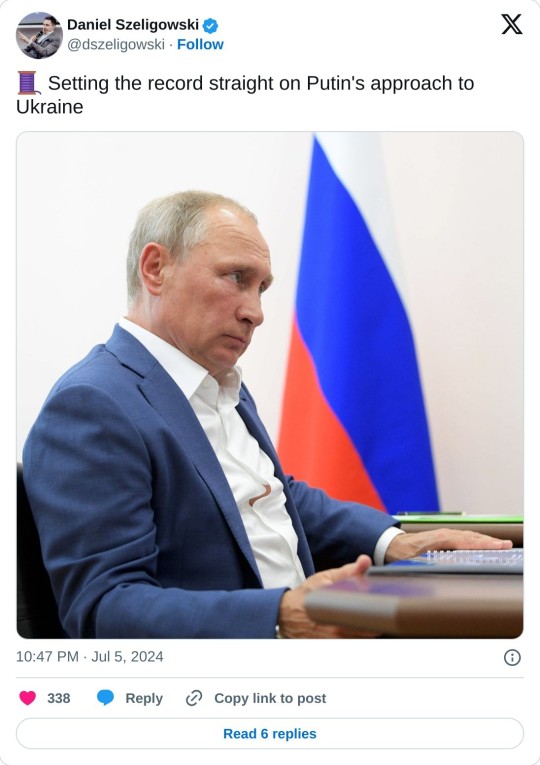
Few weeks later, Ukraine's parliament adopted a law that would guarantee the then Russia-controlled part of Donetsk and Luhansk regions additional economic, financial and cultural powers.
How did Putin react? Russia staged sham local elections in the occupied Donbas, and then sent the regular army again to Ukraine in early 2015, which led to the Minsk-2 agreement signed in February 2015.
Zelensky was even more sceptical regarding NATO accession. Asked about NATO, he once famously said he never pays anyone a visit if he has not been invited. He won the presidential election promising to compromise with Russia - to stop shooting, sit down with Putin and talk.
Did Putin meet Zelensky halfway? Not at all. He actually raised the stakes by issuing the Russian passports on the occupied territories of Ukraine even before Zelensky assumed the office, putting him in a difficult political position since the start.
Zelensky was ready to drop Ukraine's NATO bid in an exchange for the Russian troops withdrawing from Ukraine. The talks were held already before 2022. What did Putin do? He launched a full-scale invasion of Ukraine.
In the first weeks of the invasion, Zelensky was yet again ready to drop Ukraine's NATO bid. But he wanted to obtain international security guarantees. What did Putin do? He demanded that Russia must be consulted before any aid would be given to Ukraine in the event of aggression.
To sum up, Ukraine has consistently tried to reach a deal with Russia over the last decade, and was open to giving up on its NATO bid in exchange for the withdrawal of the Russian troops from Ukraine. Russia never reciprocated, never showed a good will, kept raising the stakes.
Both Poroshenko and Zelensky were initially sceptical regarding Ukraine's accession to NATO. Both wanted to get a deal with Putin. And Putin himself pushed both of them to seek NATO membership out of no other viable alternatives.
Up till now, Putin has shown absolutely no willingness to compromise with Ukraine. His war aims remain maximalist - subjugating Ukraine and changing its regime. He seeks Ukraine's partition, and will turn what is left of Ukraine into Russian protectorate.
Russia's imperial self-conception is that of Russian elites at large, and not just Vladimir Putin. The Russian leadership simply cannot reconcile with the existence of a sovereign Ukrainian statehood.
Therefore any sustainable Ukrainian-Russian compromise is currently not possible unless the Russian cost-benefit calculus changes. Only credible risk to the stability of the Russian regime would impact this calculus. The easiest way goes through defeating Russia in Ukraine.
#russia simply wants all of Ukraine#thats it#its a no-brainer#russia considers Ukraine its own colony that needs to be returned under the rule/protectorate of the 'Russian Empire'#same with Georgia Moldova the Baltic States etc#having not achieved military and political victory in Georgia through small wars#russia used its oil money and spy network to install russia-loyal government in Georgia#now that government passes russia-dictated laws#it cant take on the Baltic States (yet)#leaving Ukraine and Moldova#Georgian scenario didnt fly in Ukraine and Moldova so russia went with war#Ukraine is first simply due to the geographical position#Moldova is currently impossible for russia to attack on land and the sea corridor is veeeeerrrrryyyyy narrow and they'd have to go through#Ukrainian and Romania's waters for it#plus Moldova doesn't border Russia#Ukraine borders Moldova#strategically it makes 100% sense to go through Ukraine first#ukraine#russia#russia ukraine war#russian invasion of ukraine#russia is a terrorist state#imperialism#colonialism#genocide#history#war crimes#russian empire#russian culture#україна
143 notes
·
View notes